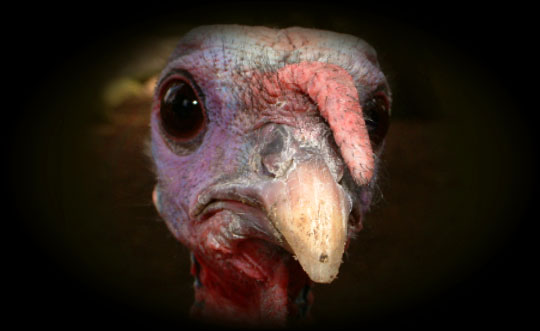Not to put a damper on your Thanksgiving or anything, but there are two new studies showing that drug-resistant bugs like MRSA are showing up in farmed meat, including turkey. Farm animals get fed a cocktail of antibiotics, which can create resistant strains of bacteria. It's been hard (though not impossible) to determine whether that's happened in the U.S., but these studies are more evidence that it has.
One study found 27 staph-tainted samples among 165 samples of beef, chicken, pork, and turkey. Only two cases, both pork, were MRSA, but the non-MRSA staph, which included seven tainted turkey samples, was resistant to the antibiotic tetracycline. A second study tested 694 stamples of ground beef, pork, and turkey. This one found MRSA on 17 percent of the pork and 17 percent of the turkey samples, and other antibiotic-resistant bacteria on even more.
The government isn't planning to do much about it, either:
Given how consistently resistant staph, MRSA, and ST398 are showing up in U.S. food products, you’d think we’d want to track down exactly where and how often these resistant strains are emerging. Unfortunately, no. A Government Accountability Report that was released in September to almost no notice scolds the federal health and food agencies for doing very little — despite an earlier GAO push in 2004 for them to do better.
If they're not going to try to regulate drug-resistant bacteria in our meat, can they at least send someone over to our houses to sample the Thanksgiving turkey for us?



